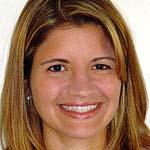Cracking The Nutrition Code On Toddler Drinks

An April study looked at the marketing and promotion of toddler drinks—formulas, milk drinks and other beverages for children aged 9–36 months. The research, published in the journal Preventive Medicine, found that these drinks are heavily marketed to parents, poorly regulated, and nutritionally inferior to whole cow’s milk and a balanced diet. The drinks consist primarily of powdered milk, corn syrup solids or other added caloric sweeteners, plus vegetable oil. They also have more sodium and less protein than cow’s milk.
Study authors encouraged readers and policymakers to better monitor and regulate these drinks. No infant or toddler needs a regular source of added sugar. Plus, based on general recommendations for a healthy diet, toddler drinks serve no nutritional need. They are calorie-dense and likely to displace calories from “real foods” precisely when introduction of these foods is essential for preventing picky eating later in childhood.
If parents insist that a child eats even though he or she is full from drinking toddler formula, then the child learns at a very young age to ignore feelings of hunger and satiety, setting off a cycle that may well lead to excess weight gain.
What’s more, toddler formulas are marketed as a remedy for picky eating—an example of trading a short-term “gain” (eating vitamins and minerals) for a long-term loss (kids stay picky longer and miss the benefits of eating healthful foods of various tastes and textures). A multivitamin is a better option for this backup nutrition “insurance” while families work on helping their children eat a wider variety of nutritious foods.
Natalie Digate Muth, MD, MPH, RD
"Natalie Digate Muth, MD, MPH, RDN, FAAP, is a board-certified pediatrician and obesity medicine physician, registered dietitian and health coach. She practices general pediatrics with a focus on healthy family routines, nutrition, physical activity and behavior change in North County, San Diego. She also serves as the senior advisor for healthcare solutions at the American Council on Exercise. Natalie is the author of five books and is committed to helping every child and family thrive. She is a strong advocate for systems and communities that support prevention and wellness across the lifespan, beginning at 9 months of age."






